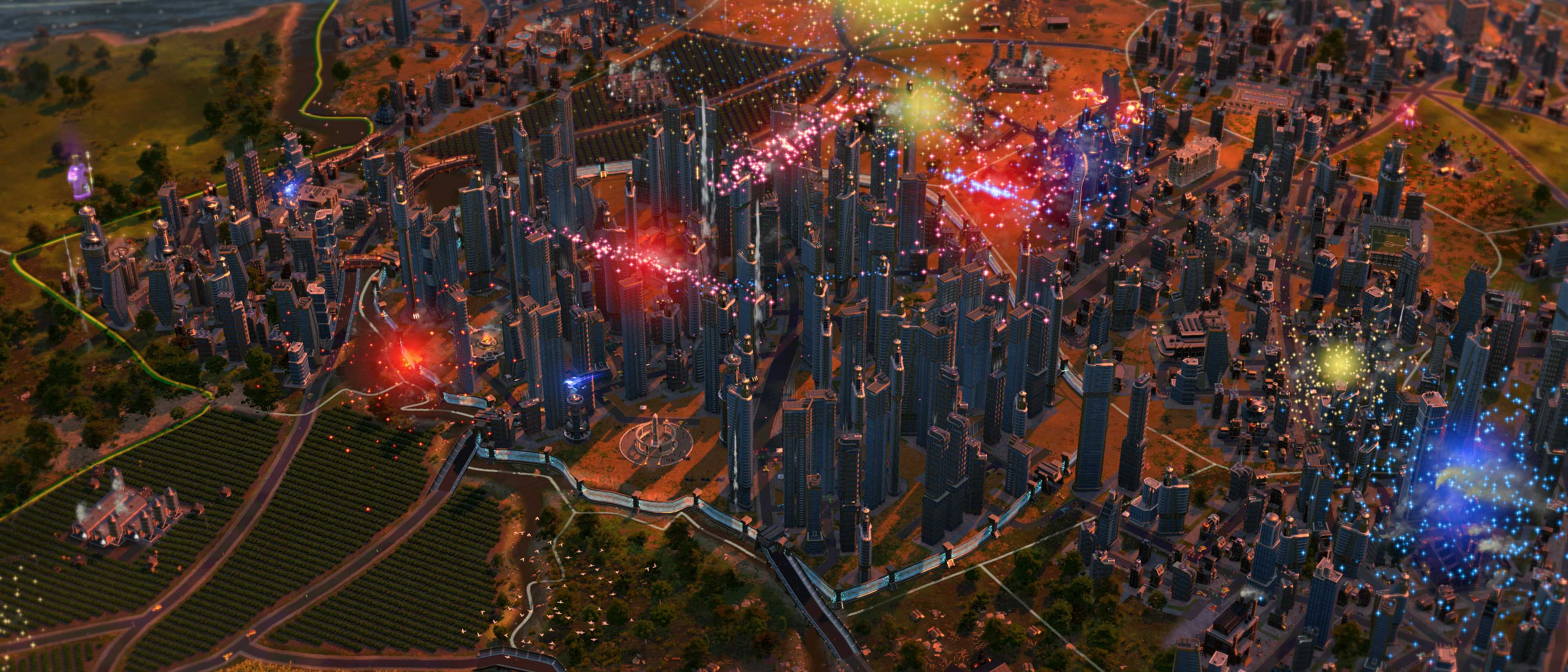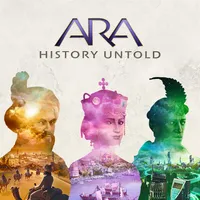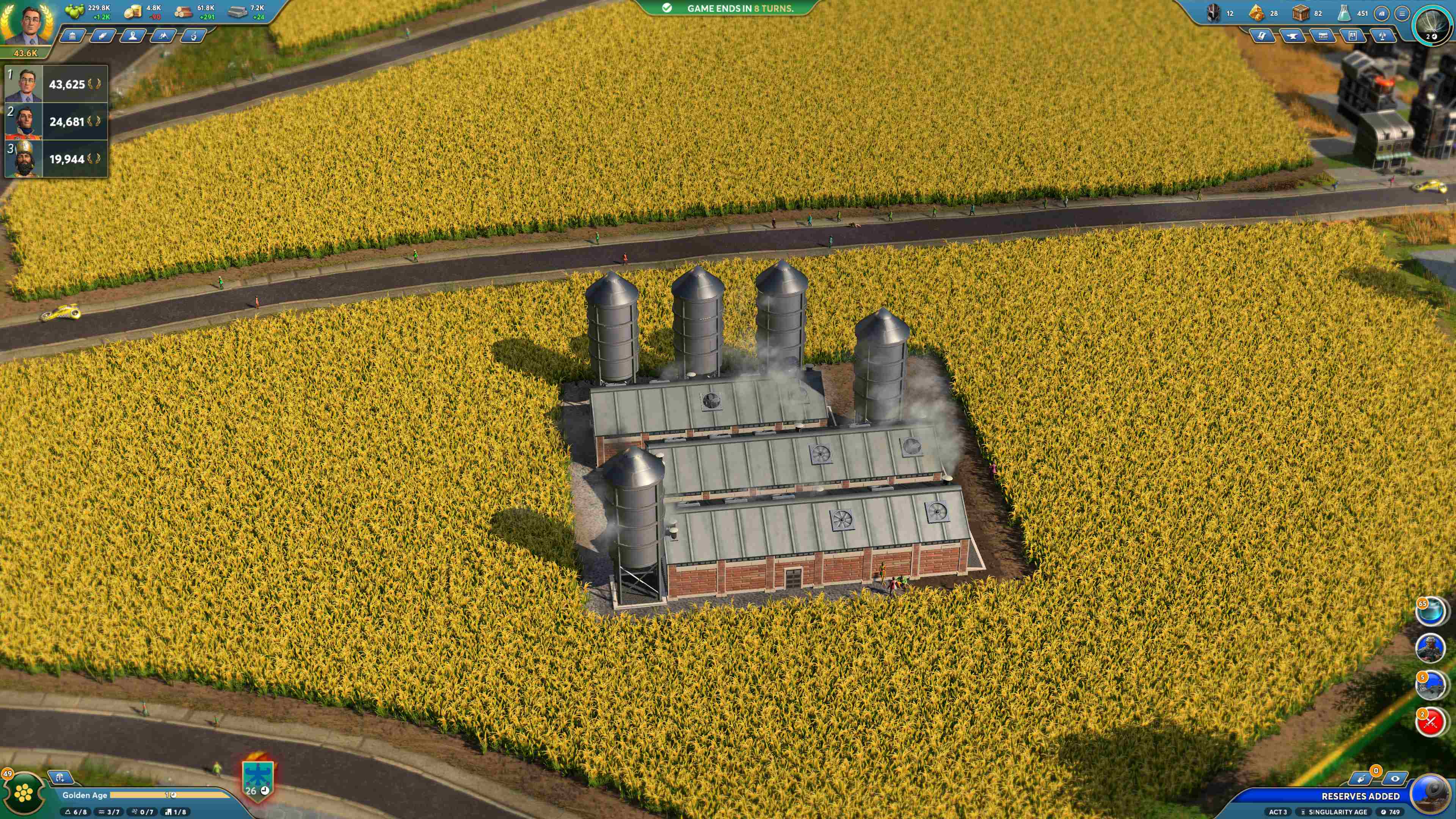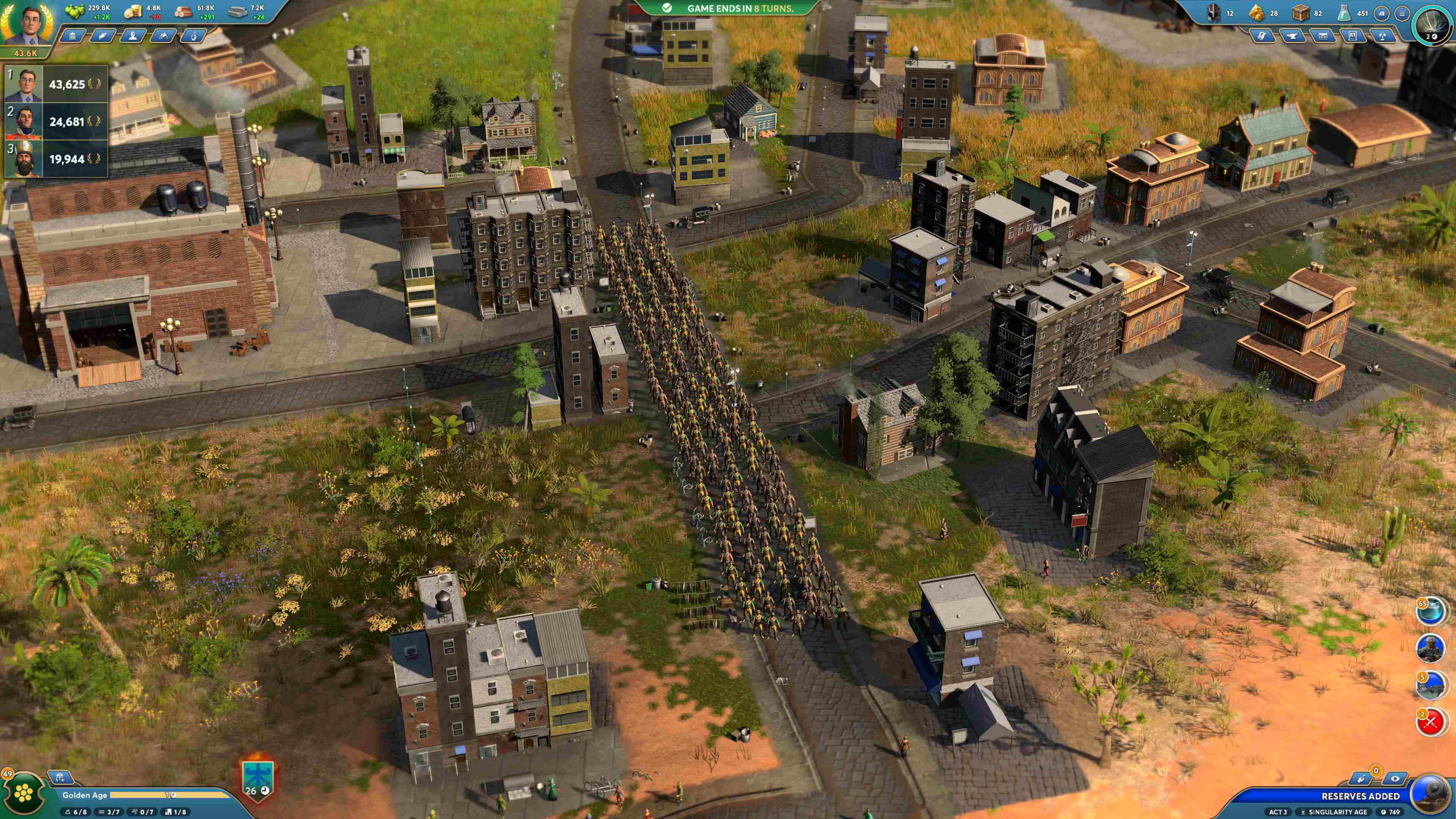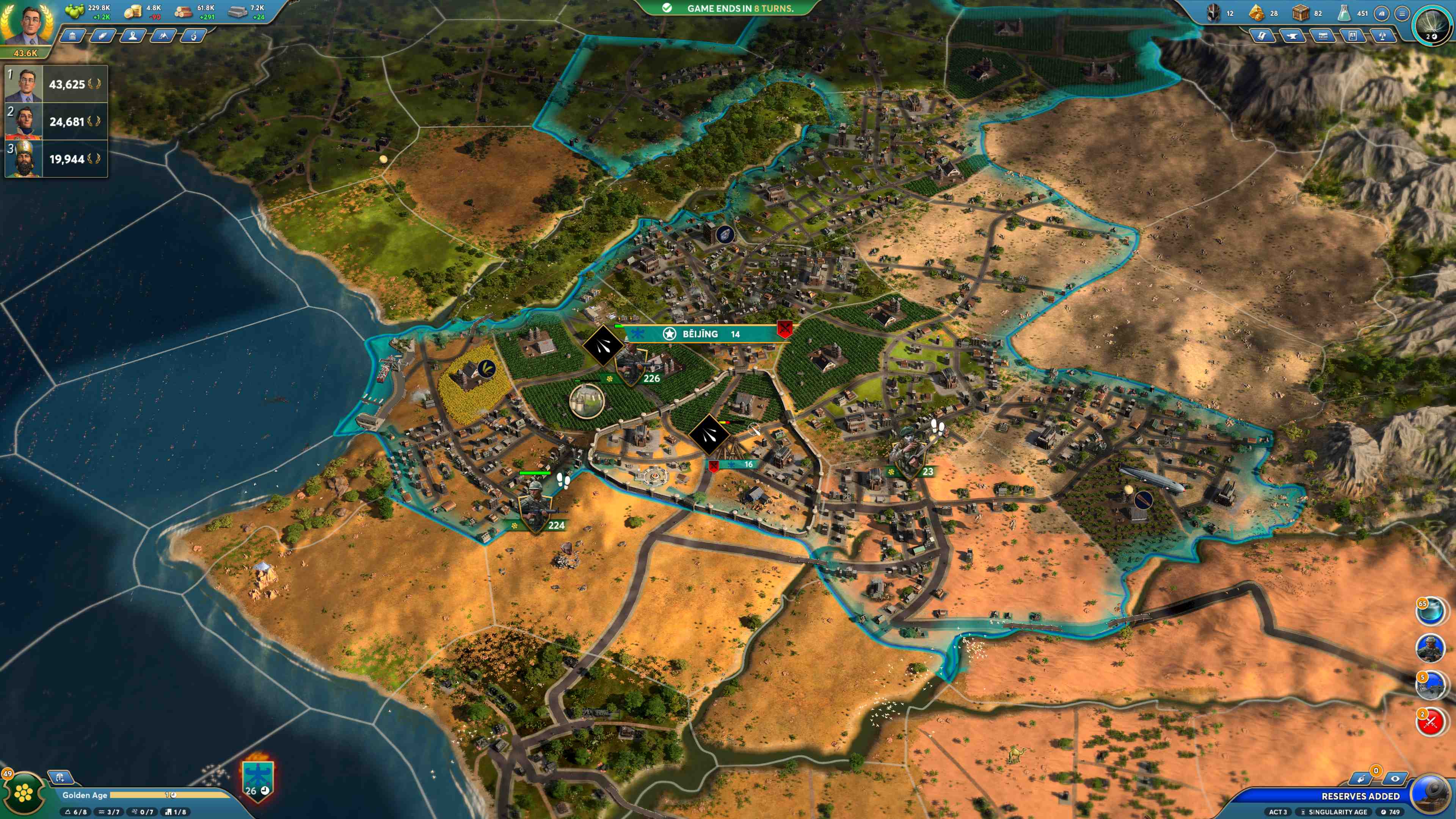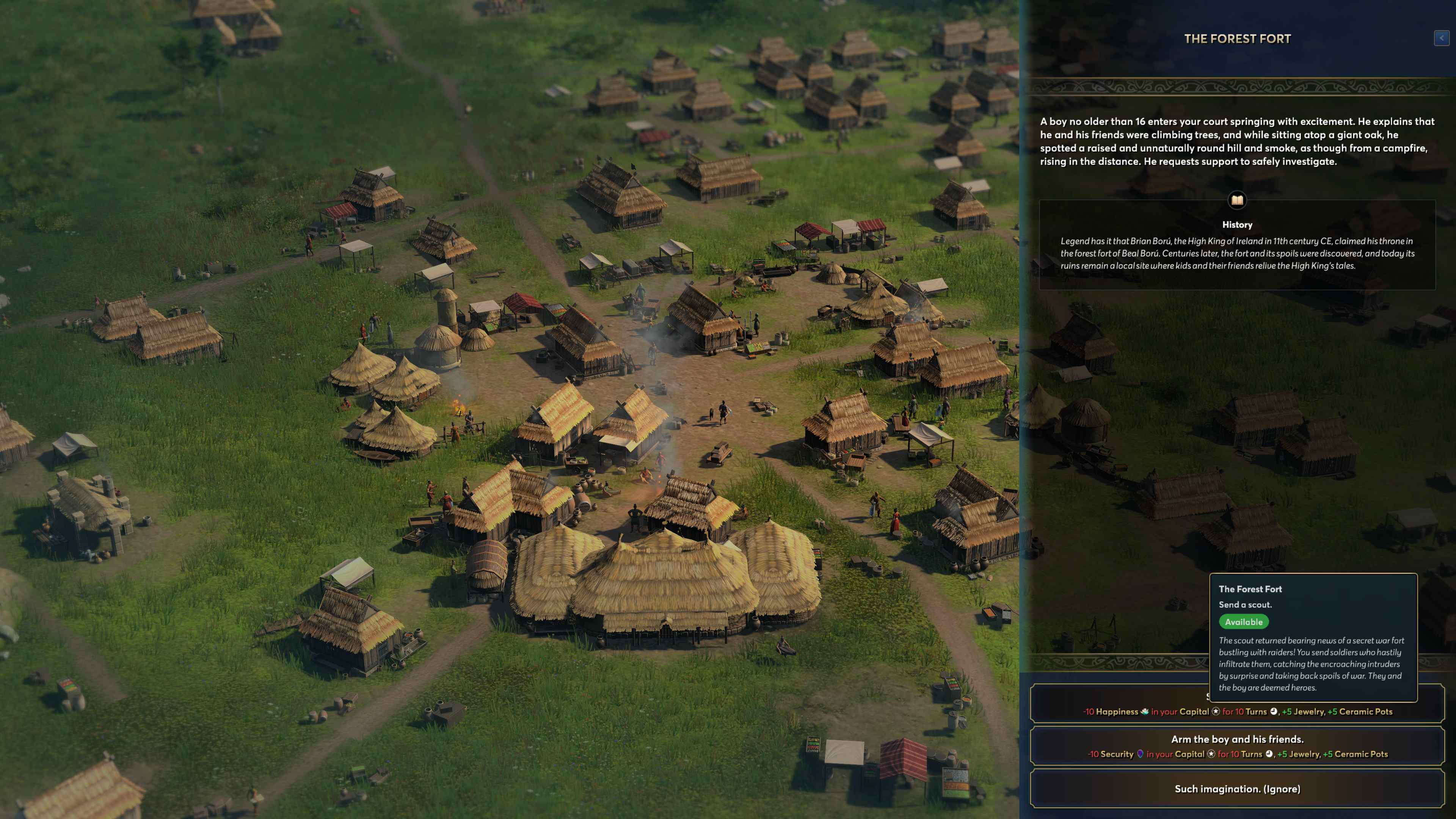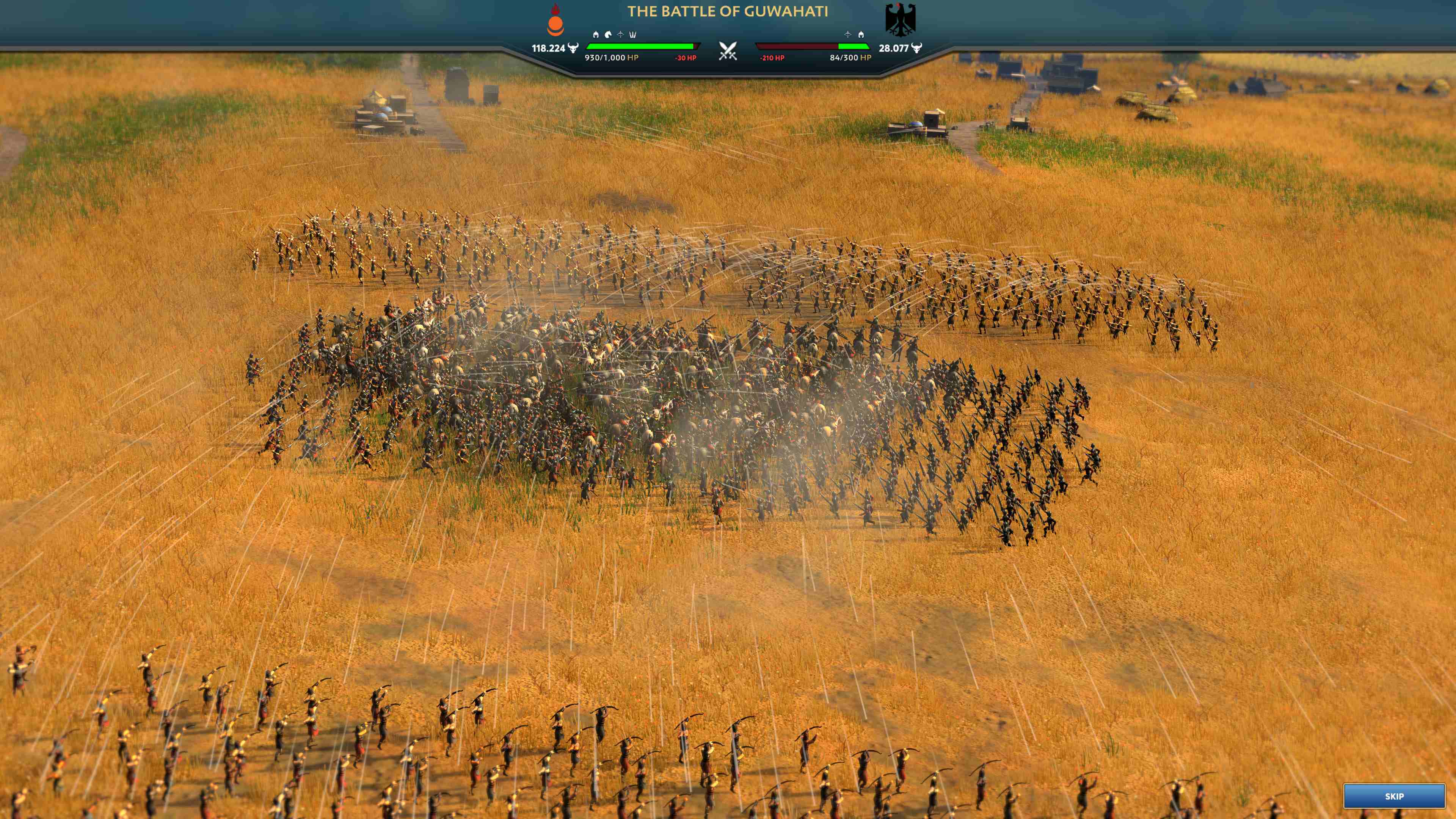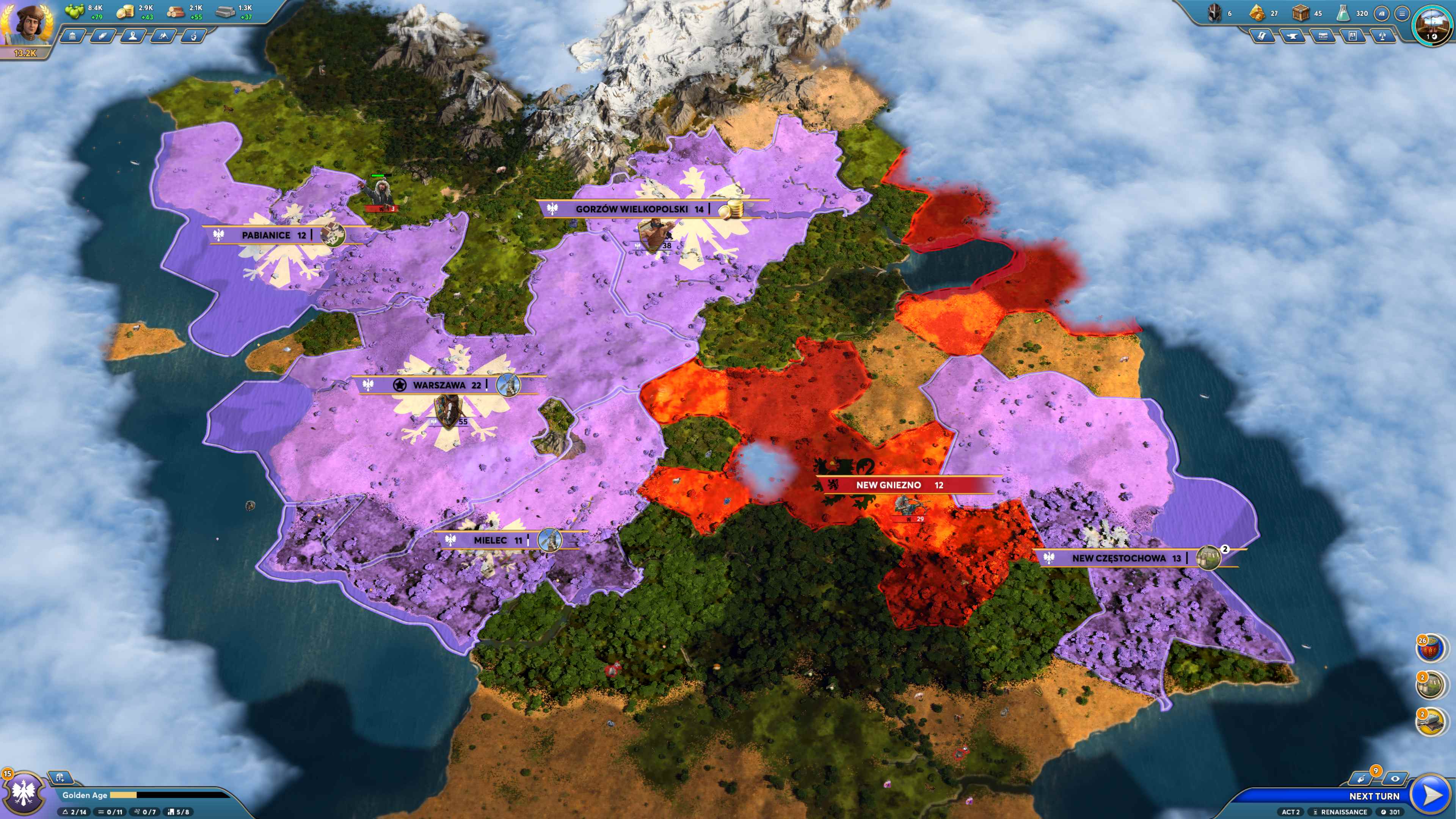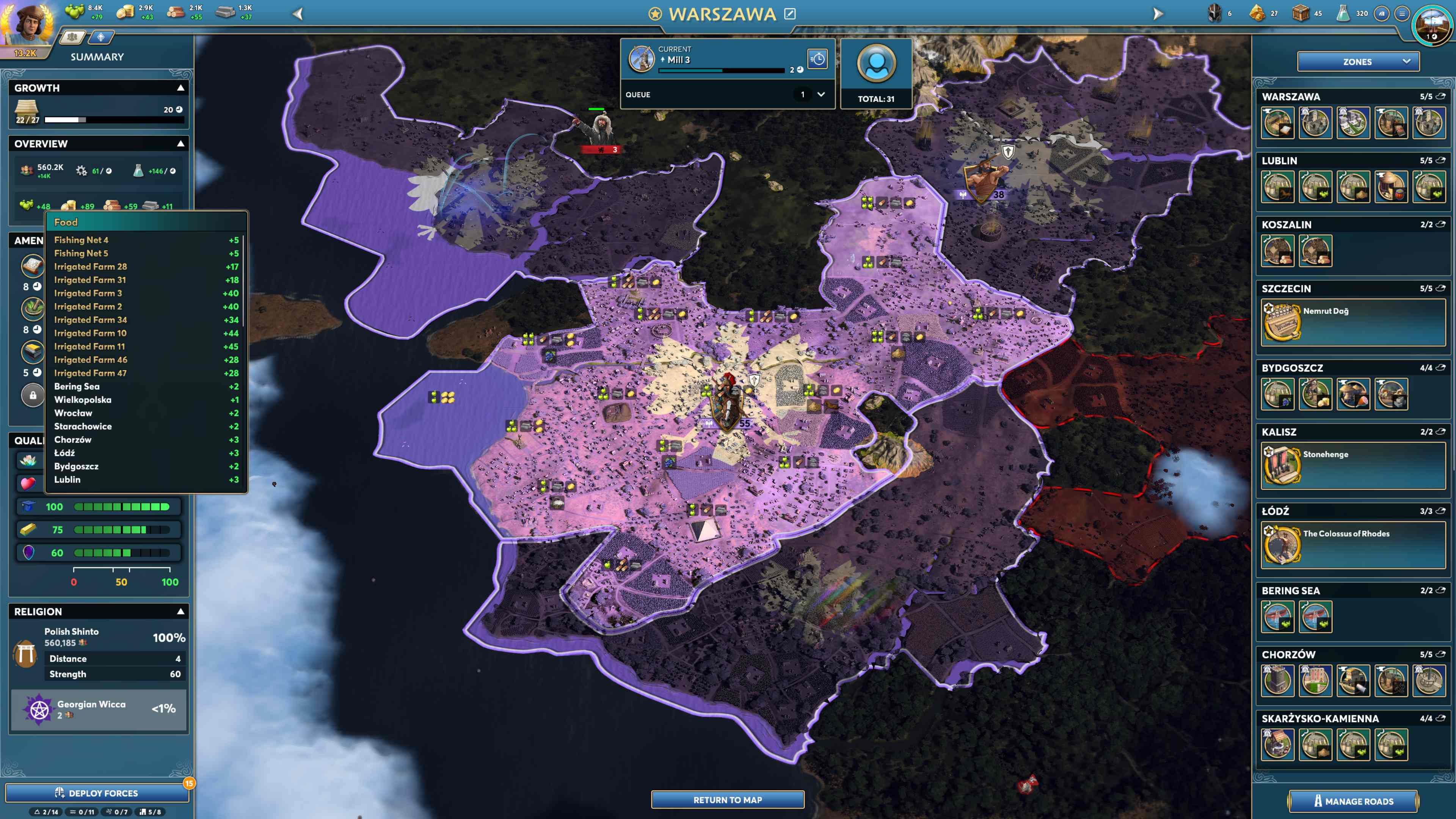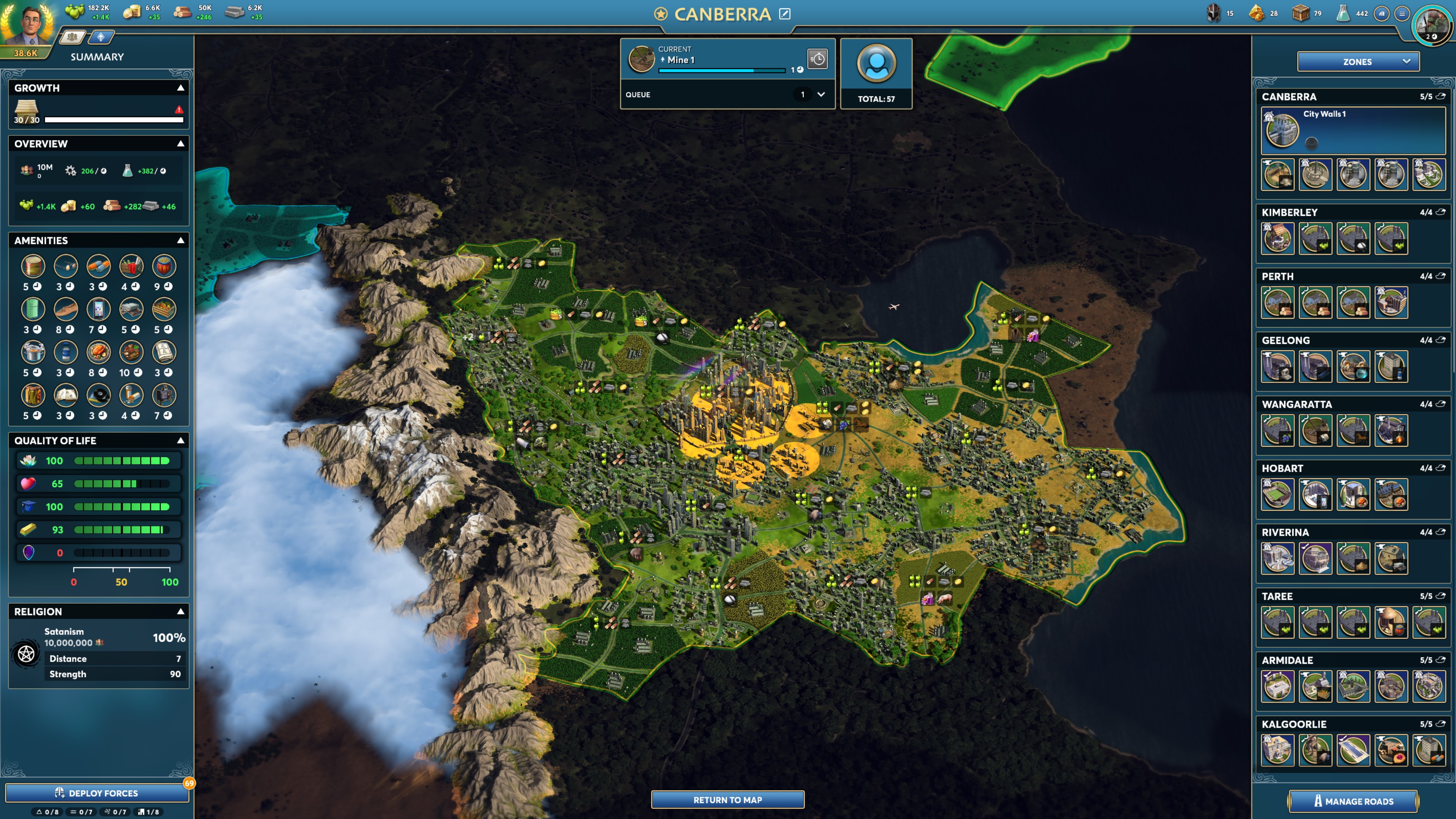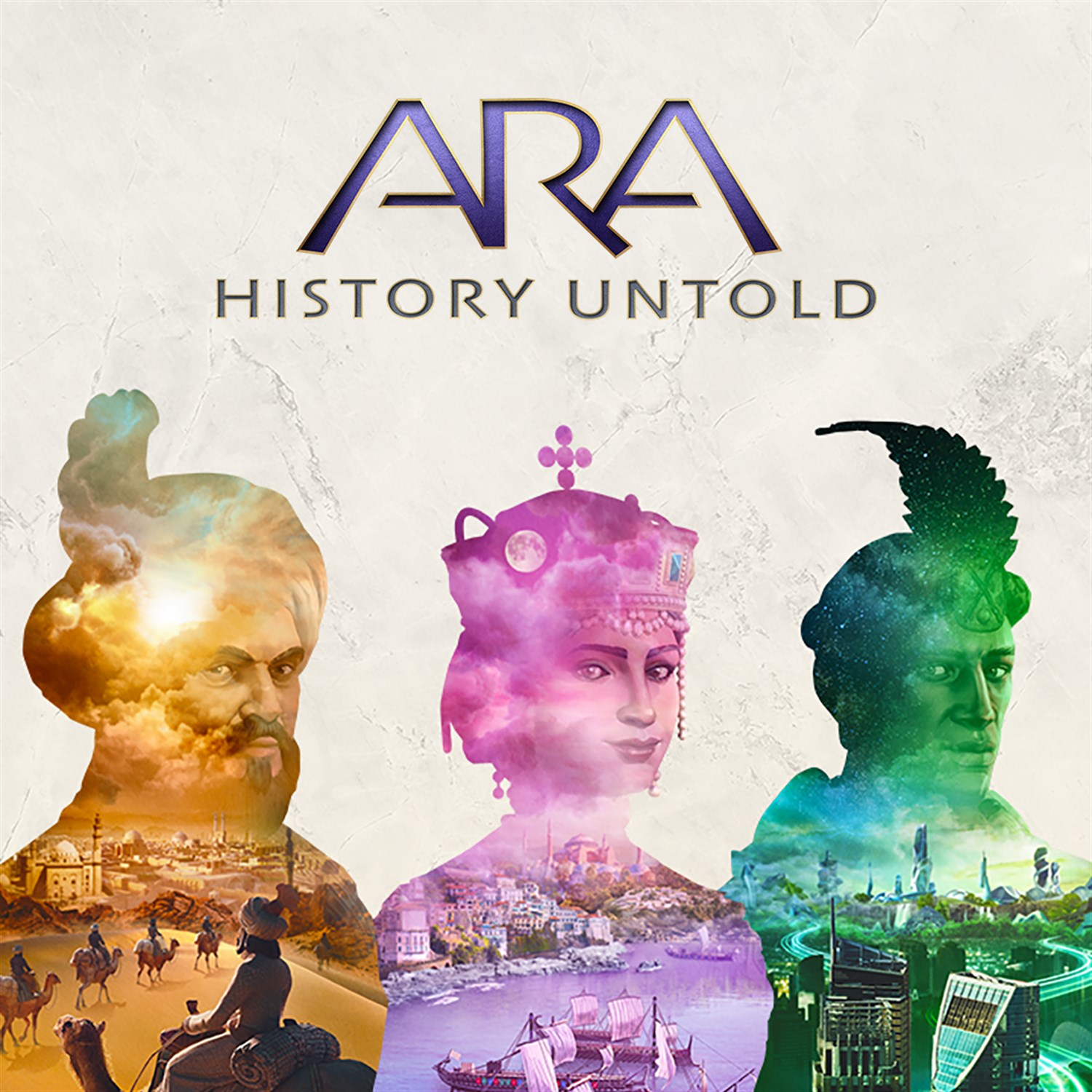Windows Central Verdict
Ara: History Untold is challenging the heavy hitters in a very competitive genre, but stands out thanks to its unique approach to 4X grand strategy and innovative mechanics. It's a gorgeous and polished turn-based strategy game that hooks you with "one more turn" and keeps you hooked with its flexible and varied strategy gameplay.
Pros
- +
Gorgeous and detailed visuals with smooth performance
- +
Engaging strategy gameplay that rewards flexibility and ingenuity
- +
Lots of variety with many different leaders and gameplay approaches
- +
Approachable entry point for the genre with easy-to-read interfaces and helpful tooltips
Cons
- -
Final act can feel unbalanced and overwhelming, and food production is a constant headache
- -
Narrative events and political relationships lack depth
Why you can trust Windows Central
I won't claim to be an expert on the strategy genre. In reality, my experience with strategy games is basically limited to the original Age of Empires II HD and Civilization VI on Xbox. I certainly didn't expect genre newcomer Ara: History Untold to actually hook me enough to review it when I previewed the game during Gamescom 2024.
Now we're here, and Ara: History Untold has fully won me over as an excellent and approachable entryway into the strategy genre, with new innovations and gameplay features that directly counter the biggest frustrations that made me stop playing Civ 6 in the past. This game has been in the works for a long time, and it's clear that it was made with passion and fresh ideas — the final product is one that successfully captures the elusive "one more turn" addictiveness.
This review was made possible thanks to a pre-release review code provided by Xbox Game Studios and Oxide Games. The companies had no input nor saw the contents of this review prior to publication.
What is Ara: History Untold?
• Price: $59.99 at Steam (PC) | Microsoft Store (PC)
• Release date: Sept. 24, 2024
• Developer: Oxide Games
• Publisher: Xbox Game Studios
• Genre: 4X Grand Strategy
• Players: Single-player, 30+ player multiplayer
• Install size: ~33GB
• Platforms: Windows PC
• Game Pass: Windows PC
• Reviewed on: Windows PC
Ara: History Untold is a turn-based, 4X historical grand strategy game developed by Oxide Games and published by Xbox Game Studios. You'll step into the shoes of one of dozens of iconic historical figures and grow your nation across the ages, rewriting history as you compete with other nations to become the most powerful, prosperous, and influential nation in the world.
Strategy games are known for deep, overlapping mechanics that require players to strategize and outmaneuver their opponents. In Ara: History Untold, you'll need to explore the world, expand your borders, manage your people and resources, and be flexible enough to tackle any challenge that comes your way. Oxide Games is seeking to innovate in the genre, too, with some new gameplay ideas and systems.
Ara: History Untold is releasing exclusively for Windows PC on Sept. 24, 2024, and is also available through PC Game Pass. There's always the possibility of console ports in the future, but right now the game doesn't even support controller input. Ara: History Untold ranges from $60-80 depending on the edition, but you can save some money and get it for just $53.19 at CDKeys.
Ara: History Untold — $53.19 at CDKeys (Standard, Steam) | $63.79 at CDKeys (Deluxe, Steam) | $74.49 at CDKeys (Premium, Steam)
A massive new entry in the 4X strategy genre, Ara: History Untold debuts with dozens of historical figures as unique and capable leaders, providing basically endless ways to play and refine your strategies. It's also available through PC Game Pass.
Ara: History Untold — Performance and visuals
Performance highlights
- Ara: History Untold is built on the proprietary Nitrous Engine with custom Microsoft DX12 rendering and cloud technology.
- The end result is a stunning game with gorgeous and detailed environments and models, even if you zoom in to a ridiculous degree.
- The game also scales very well to lower end hardware, and performance is overall quite good (with some expected dips in the final act).
One of the reasons Ara: History Untold has been in active development for 7+ years — aside from strategy games being incredibly complicated to make in general — is that Oxide Games developed an in-house game engine specifically for Ara. Apparently some of the features that Oxide wanted to implement (such as simultaneous online multiplayer) weren't possible with off-the-shelf engines. The investment paid off, it seems, as Ara looks and runs great.
I played Ara: History Untold at 4K and max settings, but the game actually scales incredibly low — enough so that even non-gaming PCs will probably be able to run it without much issue. When every setting is turned up, though, the game is lovely to behold. Oxide clearly invested a lot into Ara's world generation, as the landscapes, environmental features, and the wildlife are rendered with astounding levels of detail. You're able to zoom in to a ridiculous degree, letting you absorb the world and your contributions.
All the latest news, reviews, and guides for Windows and Xbox diehards.
Yes, every single building (or Improvement, as Ara labels them) is equally as detailed, with unique animations and designs that can change even depending on the resource an Improvement is harvesting or mining. In the late game, your vast nation will become a tapestry of interlocked colors and textures that are alive with motion. The one area where Ara clearly struggles is human models, as the leaders never look particularly amazing when blown up on the screen, but I don't mind when you can zoom in on one of your military formations and see the individual soldiers (actually representing the different units within) lined up in neat rows on a street.
This level of detail allows Ara: History Untold to achieve a more cinematic feel than some other strategy games, reflected most prominently in battles. Like many in the genre, Ara: History Untold is flooded with countless statistics, numbers, and icons and players can embrace that. However, you can also choose to watch each battle unfold in real time, with all the unique units, formations, and armies represented on a virtual battlefield that stays true to the results. Of course, you can also totally ignore this feature, too.
There's an original soundtrack as well, and it's exactly what I expected from a strategy game. It's epic and grand, a modern orchestral composition that underlines the progression of history each match. It's a great soundtrack, although I will say that at times it felt like the wrong song came on at the wrong moment.
When it comes to performance, turn-based strategy games are hardly the most demanding, and Ara: History Untold runs very smoothly... Up until the final act. With cities and armies bigger than ever and more information being processed at a time, the last turns of a match can be slowed down by some dropped frames. The game never crashed, though, and these performance bumps were always incredibly minor.
I didn't encounter many bugs, either. Ara: History Untold feels fleshed out and polished, and the few bugs I did find were seemingly fixed by the three minor patches Oxide Games rolled out over the course of my review period. The most annoying issue by far was being completely unable to demolish any of my Improvements to make room for new ones, a bug that was present during my entire first match (but was fixed by the first patch) and then reappeared halfway through my second match (but was fixed by the second patch).
Ara: History Untold — Gameplay experience
Gameplay highlights
- Ara: History Untold is a turn-based historical grand strategy game, and can be most closely compared to the Civilization franchise.
- However, Ara does away with Civilizations' classic win conditions in favor of a Prestige leaderboard system spread across three acts.
- Players can also utilize crafting to give their cities and nation an advantage, and use formations and military tactics to give their armies an advantage.
Ara: History Untold will feel familiar to Civilization fans, but it's different enough in multiple ways to stand on its own in the space. Personally, Ara is a far more engaging game for long-term play than Civilization VI was, for a few reasons.
The hallmarks of the genre are here: you found cities, which expand across regions that you claim. You can build Improvements in these regions, which may harvest resources, craft supplies and components, and otherwise improve your nation. You research new technologies, race to build legendary Triumphs that will mark your name in the history books, and try not to get overwhelmed or outpaced by your neighbors.
However, Ara: History Untold doesn't force you to subscribe to one singular path to victory. Your aim isn't to destroy all other nations, convert everyone to your religion, dominate the world culturally, or transcend reality with your technology. Instead, it will be a mixture of all these things that ultimately lead to your victory, and each leader has unique attributes and traits that help shape your overall strategy.
This works through the Prestige system. Everything you do in Ara adds to or subtracts from your Prestige score. Build a school? You'll gain a little Prestige. Start an unprovoked war? You'll lose Prestige. Win that war? You'll gain Prestige back. The amounts are dependent on the action or achievement, and it's all tracked in the Nation Standings. Here, all the nations compete for the top spots — the one with the most Prestige is the most dominant nation in the world, and is on track to win the game.
Ara, like others in the genre, also follows humanity's path through history, dividing time periods into eras. However, all the eras are also divided into three acts, and the transition to a new act has massive ramifications for the game. The nations that fail to keep up with other players and aren't able to progress quickly enough are lost to time at the end of an act and lose the game, while their cities and monuments remain as ruins to pillage in the world. You have to remain competitive throughout a full game, and your strategy needs to be flexible to avoid falling behind.
Ara: History Untold is also very big on crafting, in that there are literally dozens (if not hundreds) of different items, supplies, and components you can craft. Some are necessary for specific Triumphs or Improvements, some can be used to speed up crafting for other things, some can be used as Amenities to boost your city's quality-of-life stats or provide other benefits, some can upgrade your existing Improvements to be more productive — most are a combination of any number of those things.
Between the Prestige and crafting systems, you really do have the freedom to carve your own path to victory. In my first game, I had an empire of cities that collectively focused on building as many Triumphs and collecting as much knowledge as possible, and one city was entirely dedicated to spreading my religion. The more Triumphs I built, the more I pulled ahead of other nations, eventually winning with a massive lead.
My second game, I challenged myself to win with just one city, meaning I had to avoid building Triumphs to free up as much space as possible for Improvements and upgrades. It was difficult to balance the needs of my city as it grew to a population of 10 million people, but having only one city meant that everything I produced and created could be used to improve the quality of life for my citizens. As a result, my productivity, research capabilities, and commerce skyrocketed. I won that game, too, but it was a far closer race that required me going to war in the final stretch.
Speaking of war, Ara: History Untold also encourages deeper levels of strategy, with different military units each having unique specialties and abilities. You can combine units into formations of varying size and shapes, too, and the formation you choose and how you place your units in them can have a huge impact on that formation's effectiveness in battle. You can stack multiple formations on top of each other to create huge armies, and that also affects how capable those individual formations are. The landscape where you fight, the morale of your people and how weary they are of war, and the strengths of your opponents can all change the outcome of battles.
Everything I've talked about so far is where Ara: History Untold excels. Its strengths rely in the flexibility it affords players, leading to infinitely diverse matches. However, it's not perfect. Your relationships with other nations and tribes are restricted to a group of basic interactions with no real depth. There's no subterfuge, no way to request specific resources or send aid to other nations, no way to form meaningful alliances beyond assistance with active wars or research projects.
Ara's story is also limited to scripted narrative events, which are genuinely interesting, such as choosing to investigate rumors or information, accept specific aid from a nation, or respond to a crisis within your own nation, and have actual consequences and choices... The first time around. My second game, I was already seeing multiple repeated narrative events, and the longer each game went on the less these events felt like they mattered. At least most of it is beautifully written and narrated — well, apart from the actual results of these narrative events.
Ultimately, none of the story elements of Ara had any lasting impact on my ability to win (or lose) my matches, and by my third match I stopped caring and skipped straight to choosing one of the three options made available to me. There's so much depth everywhere else that the politics and narratives lacking that depth stands out.
Act III also very quickly becomes messy and overwhelming. At this point your nation is massive, requiring you to manage an absurd number of buildings, amenities, and cities. Forethought and careful planning help prevent some of this mess, but you're still unlocking a deluge of new technologies, upgrades, and Improvements until the very end. Some are upgrades to older Improvements (but in some cases you can't actually upgrade existing Improvements, while in others you can), while some are brand-new and required for accessing newer technologies, resources, and military units.
The biggest reason it's so annoying to deal with is that food is always your biggest problem. This makes sense in some regards, but in my second match nearly 40% of my city was solely dedicated to fully upgraded farms, complete with accompanying Amenities and Improvements that provided every food bonus possible, and I still struggled to feed my citizens at points. This balance of food production left me little room to expand into power sources, for example, locking me out of a lot of late-game units and upgrades.
Food was absolutely a constant, never-ending major concern in early eras of human history, but modern technology makes it considerably easier for a successful nation to feed its people. In Ara: History Untold, though, it never feels like food becomes easier to create, you're simply scrambling to make more to match your population. A balancing tweak to adjust farms in the final act would give players a lot more breathing room to explore late-game strategies and technologies.
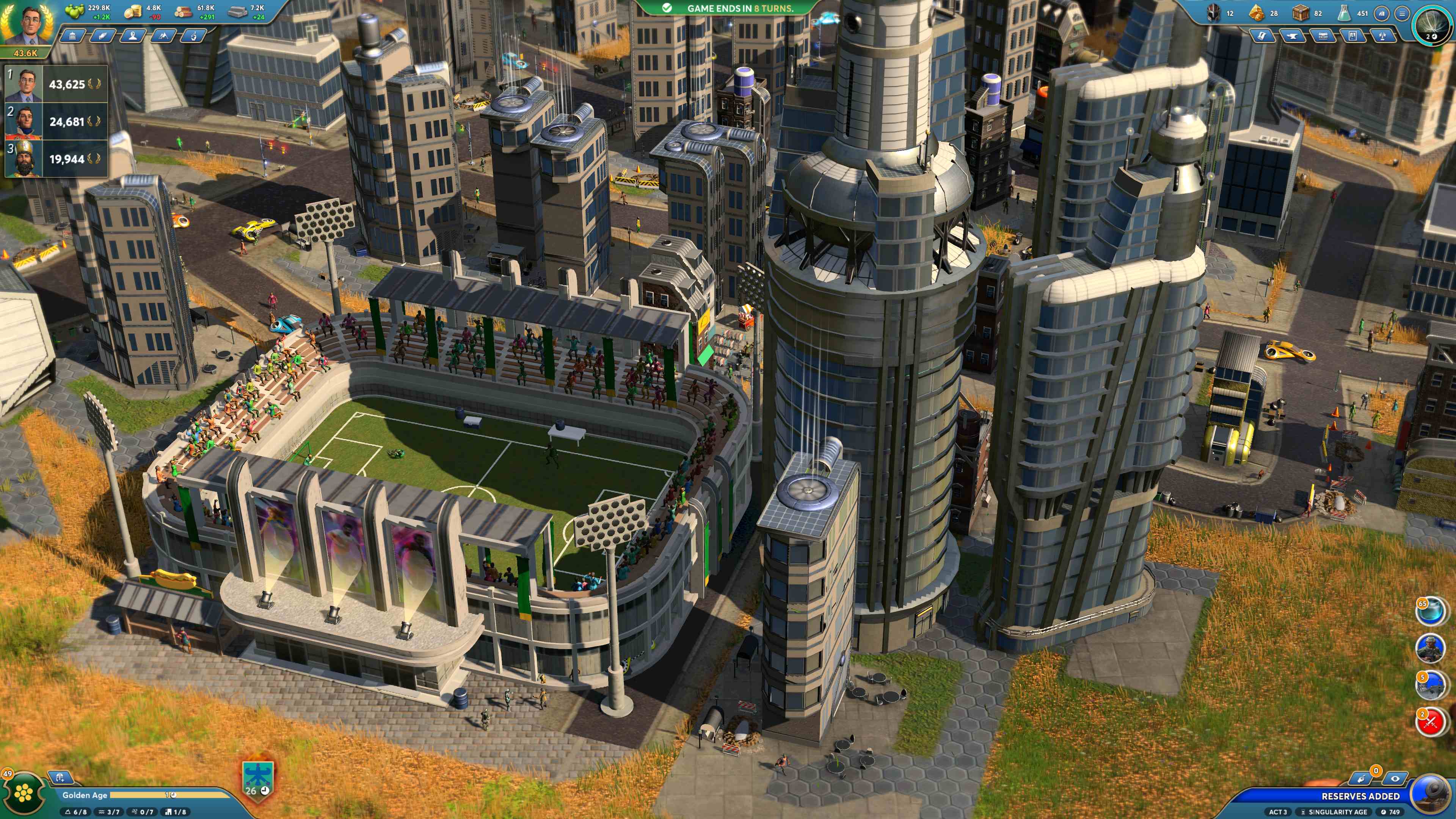
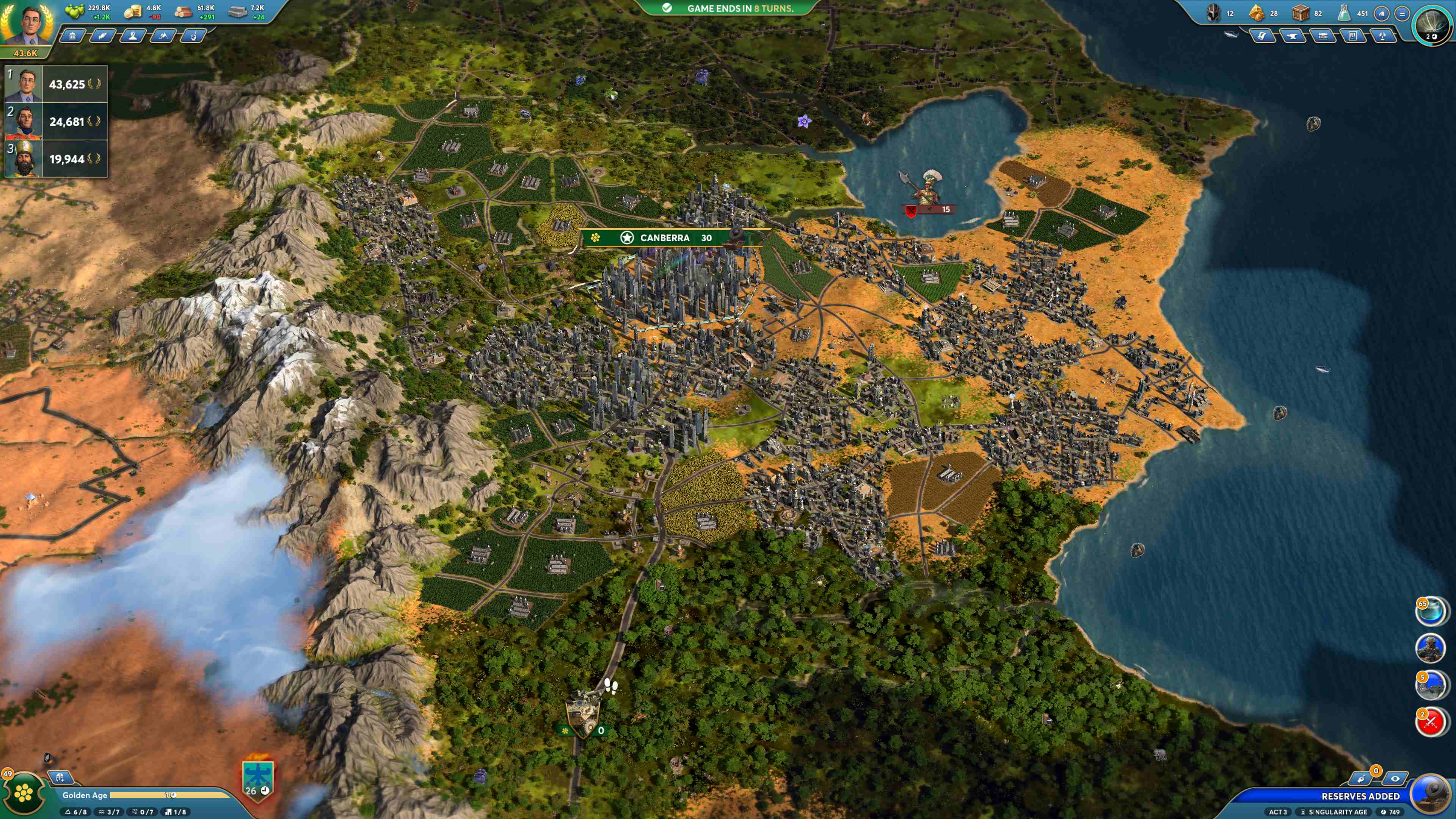
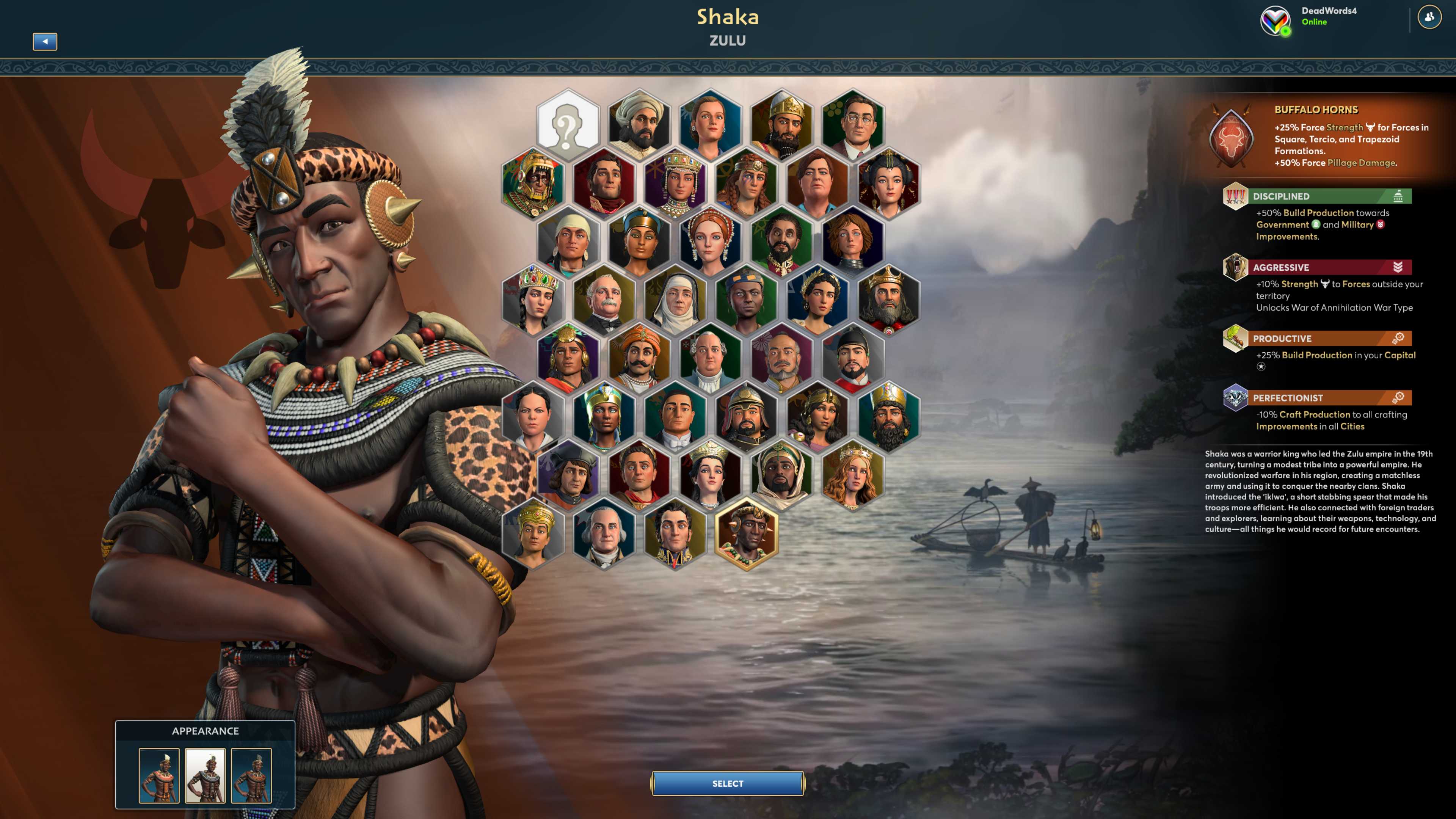
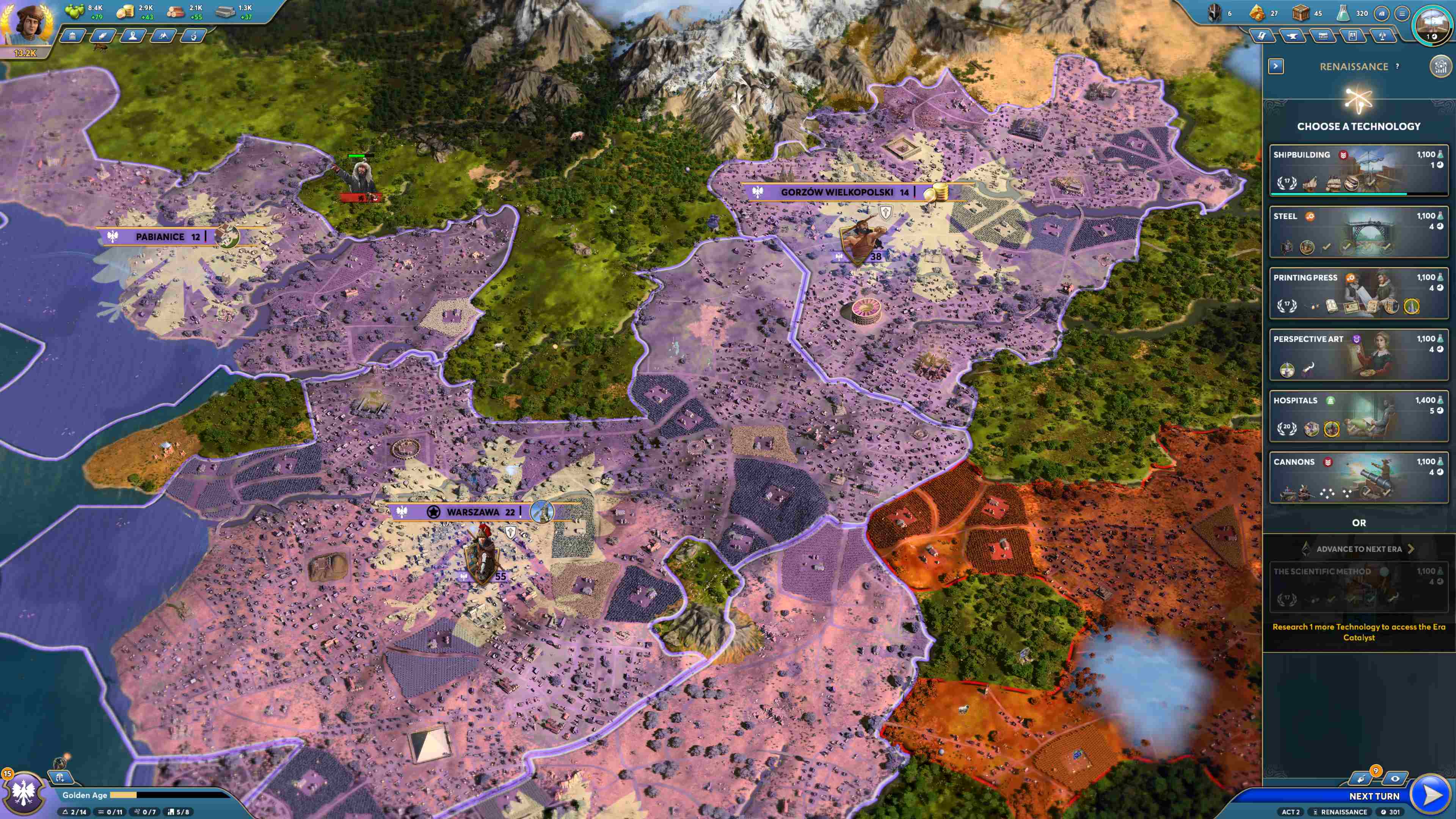
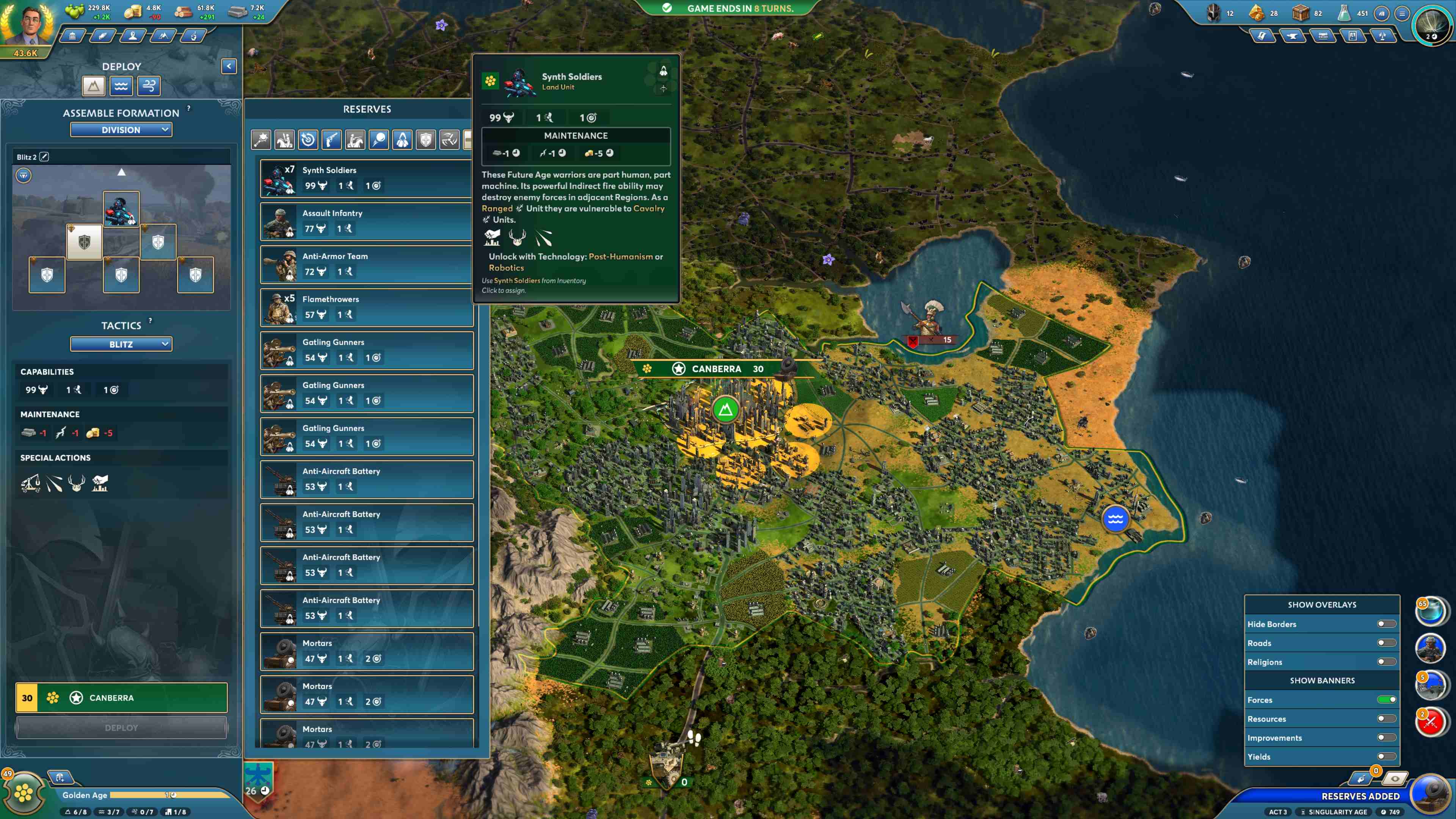
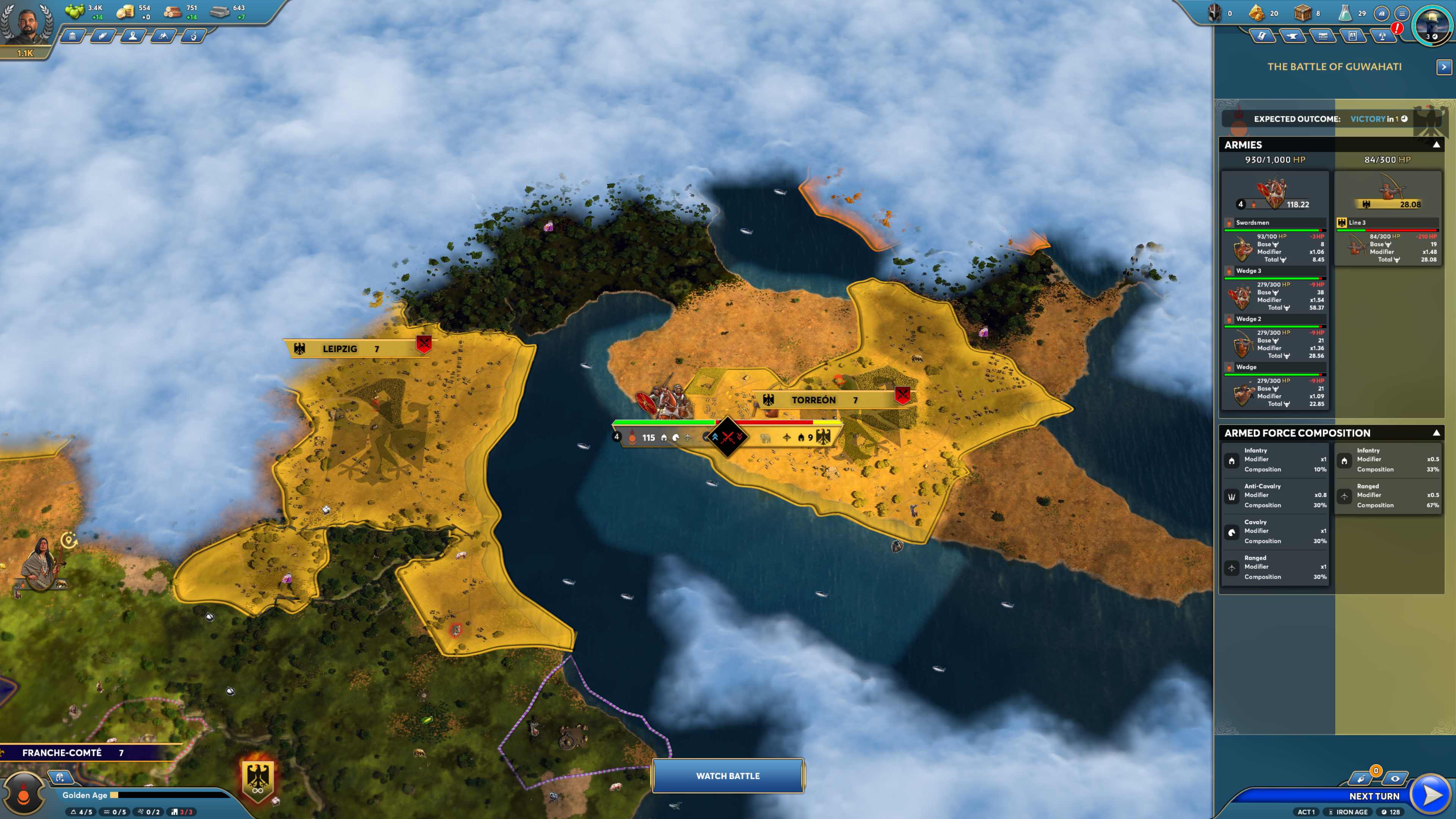
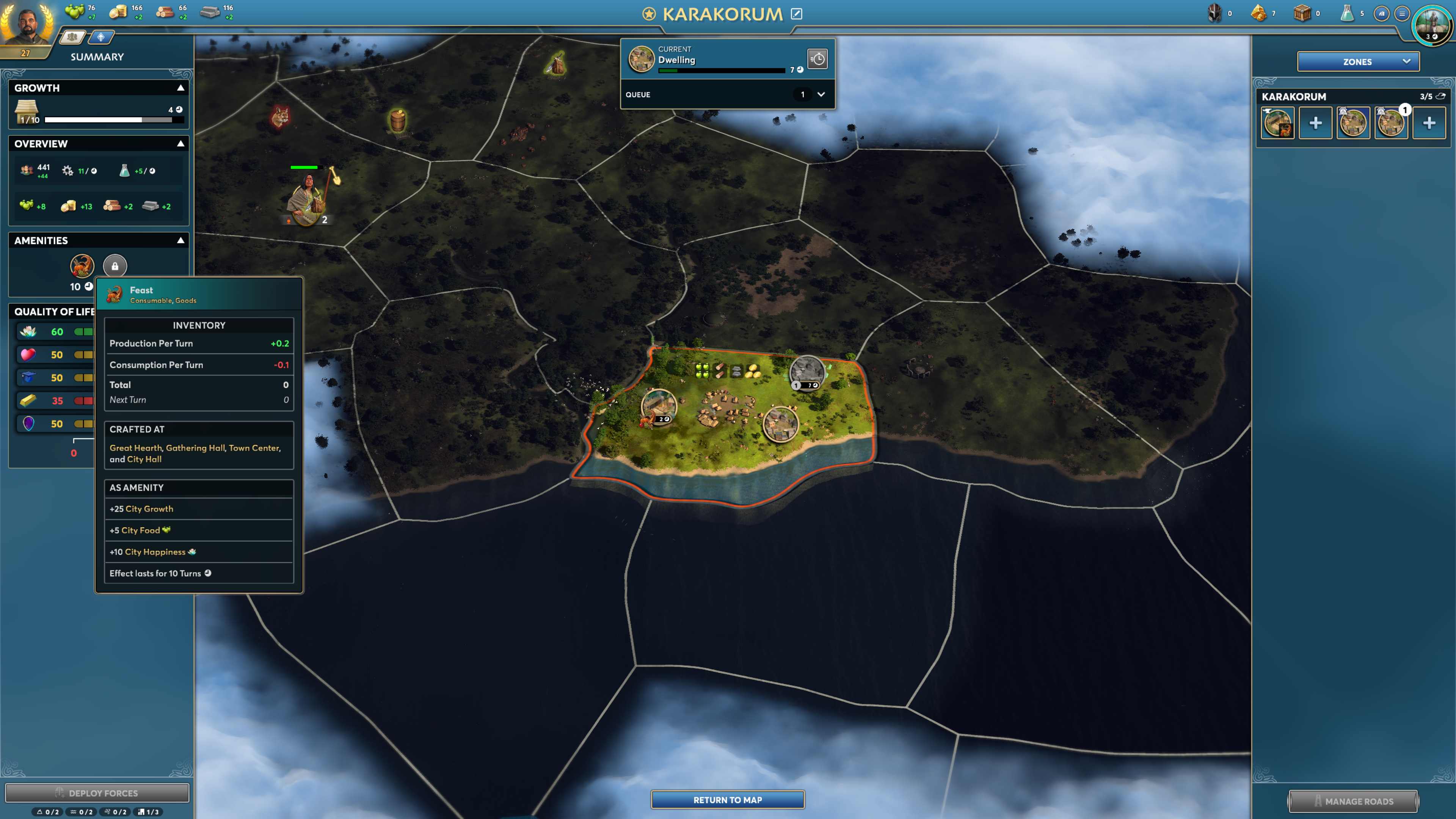
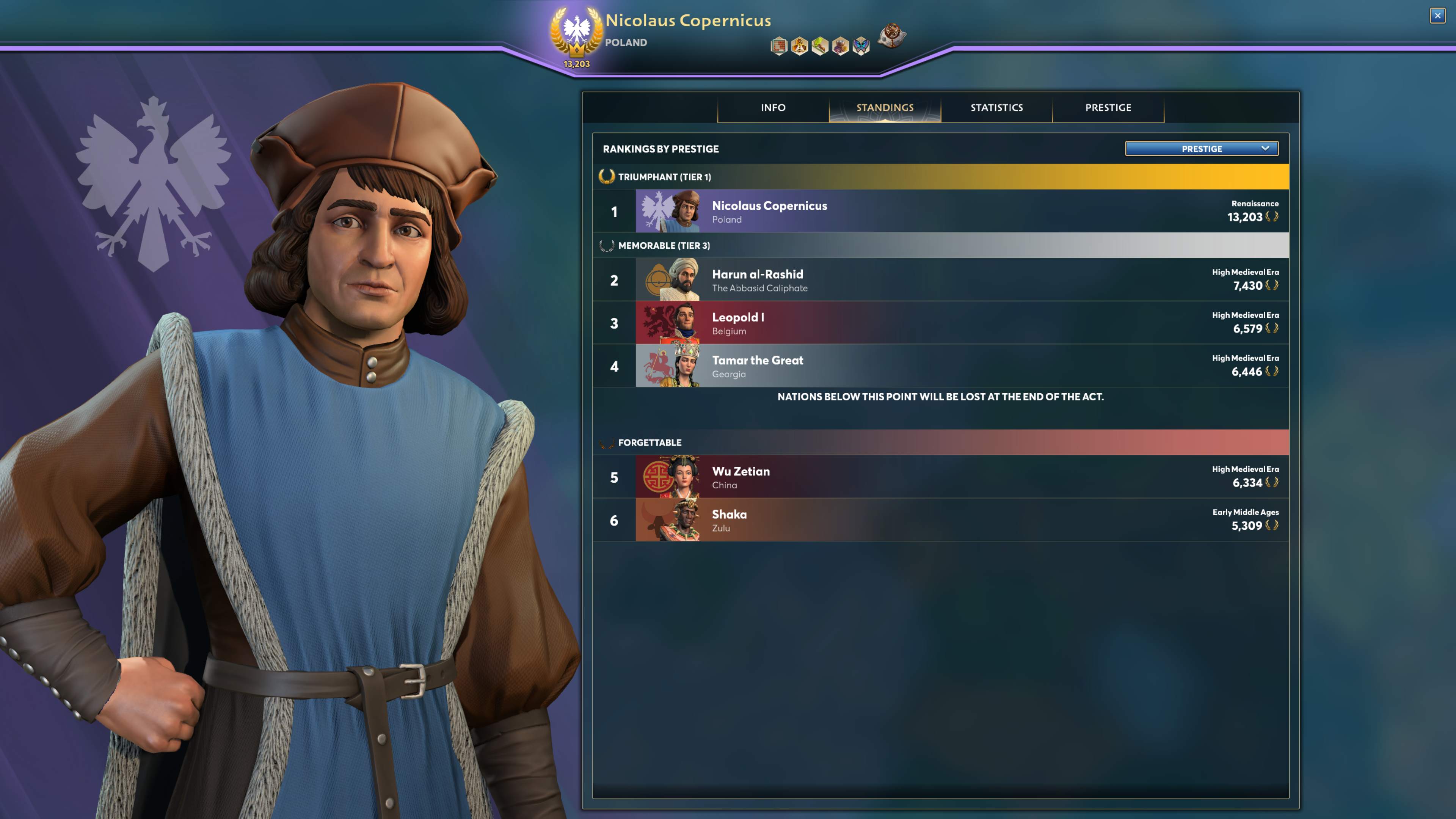
Ara: History Untold — Accessibility and approachability
Accessibility highlights
- Ara: History Untold's interface and menus are easy to navigate and read, with helpful tooltips for basically everything.
- There are also multiple options for scaling the UI and audio, customizing the audio and controls, and more.
- You don't get many options that actually affect the gameplay, but there are plenty of difficulty levels, as well as ways to customize the maps and each individual match.
It has been claimed at points that Ara: History Untold aims to welcome newcomers into the strategy genre without alienating strategy veterans, and I believe Oxide Games has succeeded at this. All of the menus in Ara are well laid out and easy to read, and you have UI and text scaling options as well. Practically everything has detailed explanations when hovering, and these tooltips are multi-layered and fully interconnected, as well as being easily accessible in the in-game "Encarta," which is basically Ara 101. When you first start playing, Ara also offers to walk you through a detailed tutorial, too.
When you start a match, you have control over the difficulty level and can finetune each map and game by customizing map layouts, resource density, and more. You can even customize exactly which nations and leaders you'll compete against. Ara: History Untold was easy for me to get into after a short adjustment period, and feels very approachable for an in-depth strategy game. Accessibility-wise, Ara isn't swimming in features and settings, but does offer granular audio controls, key binding, screen narration (with support for Windows Narrator), and more.
Of course, Ara: History Untold is also turn-based, so there's absolutely no rush for players in solo matches. Turn-based always comes with accessibility benefits over real-time games because of this, although players will all share the same time limit per turn in multiplayer matches.
Ara: History Untold — Final thoughts
You should play this if ...
✅You're a fan of strategy games and want something new
Ara: History Untold perfectly walks the line between innovating with new features and fixing what isn't broken, entering the strategy genre with some fresh ideas. Oxide Games has made a turn-based, 4X grand strategy game that lets players get more creative and be more flexible with their strategies.
✅You're interested in testing the waters with an approachable strategy game
There's an absurd amount of depth to Ara: History Untold and its strategy gameplay, but you're not immediately thrown into the deep end. In-depth tutorials and helpful tooltips in an easy-to-understand interface make Ara one of the more approachable games in the strategy genre.
You should not play this if ...
❌You prefer strategy games with a lot of political or narrative depth
Ara: History Untold nails the city and nation management aspect of the genre, but it doesn't push any boundaries when it comes to its politics or narrative events. Government types make little difference beyond city caps and a few unique traits, you have limited options when interacting with other nations, and narrative events quickly become repetitive.
Even with my preview during Gamescom 2024, I was still unsure going into my Ara: History Untold review. This is a genre with which I am mostly unfamiliar, and I was concerned I wouldn't find enough to like to make my opinion on the game interesting. Fortunately, that wasn't the case. Ara: History Untold successfully drew me into the strategy genre with that "one more turn" magic I remember so fondly with Civilization VI.
Except, Ara is a better game than Civ 6. It's more attractive, it's more engaging, and it's more willing to embrace players and their unique approaches. There's clearly enough depth here to capture the attention of strategy enthusiasts, but Ara is genuinely an excellent starting place for anyone intrigued by the intimidating strategy genre. As a predominantly solo player, I loved it, but Ara: History Untold also supports full online multiplayer with over 30 players — and you never have to wait for other players to complete their turns, and you're able to continue the same match over the span of weeks if you choose.
I just wish the final act felt more engaging and less tedious, and I want the ability to meaningfully affect other nations in any way apart from random narrative events and war. In all other ways, though, Ara: History Untold is an excellent grand strategy game and should be a resounding success for Xbox... I do hope it actually comes to Xbox console, though.

Zachary Boddy (They / Them) is a Staff Writer for Windows Central, primarily focused on covering the latest news in tech and gaming, the best Xbox and PC games, and the most interesting Windows and Xbox hardware. They have been gaming and writing for most of their life starting with the original Xbox, and started out as a freelancer for Windows Central and its sister sites in 2019. Now a full-fledged Staff Writer, Zachary has expanded from only writing about all things Minecraft to covering practically everything on which Windows Central is an expert, especially when it comes to Microsoft.
